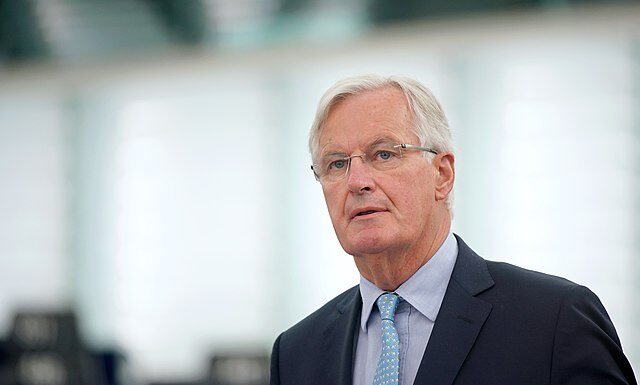To listen and subscribe to this podcast on Spotify, Apple, Google Podcasts, PocketCasts or other platforms, please click here.
To listen and subscribe to this podcast on our Youtube channel, please watch hereunder:
Charles H. Dallara is an American banker and the former managing director of the Institute of International Finance, which is a group representing the global financial services industry.
He served as the managing director of the Institute of International Finance, Inc. from 1993 to 2013, leading it in its prominent role during the European sovereign debt crisis, including the private sector involvement (PSI) agreement reached between European countries and financial organisations on the one hand and the Greek government on the other, “the biggest sovereign debt restructuring in history.”
Before that, he acted as managing director at J.P. Morgan & Co. from June 1991 to July 1993, and he also held various positions in the George H. W. Bush and Ronald Reagan administrations: Assistant Secretary of the Treasury for Policy Development and Senior Advisor for Policy to the Secretary of the Treasury (1988-1989); U.S. Executive Director of the International Monetary Fund (1984-1989), and concurrently as Senior Deputy Assistant Secretary of the Treasury for International Economic Policy (1985-1988); Deputy Assistant Secretary of the Treasury for International Monetary Affairs (1983-1985); and U.S. Alternate Executive Director at the IMF (1982-1983).
Currently, he is an Advisory Partner of Partners Group and Chairman of Partners Group Board of Directors, USA.
He is the author of a newly published book, titled “Euroshock. How the Largest Debt Restructuring in History Helped Save Greece and Preserve the Eurozone” (March 2024)
In this episode of the Brussels Report podcast, BrusselsReport.eu editor Pieter Cleppe discusses the following topics with him:
- How sustainable is the Eurozone? Will Eurozone democracies be able to withstand future shocks in case of fiscal transfers and fiscal adjustment programmes?
- Are there similarities between indebted Western democracies today and the 1980s era with its rate hikes, which also troubled Latin American countries at the time?
- What are the chances of Argentina’s President Javier Milei succeeding?
- Does bitcoin have a future?
From the book "Euroshock" (ht Russell Napier), where Charles Dallara recounts two conversations, years apart, he had with Hans Tietmeyer, President of the Bundesbank:
“The lira and the drachma will be part of the euro over my dead body”, he protested loudly. Hans was a large and…
— Ronnie Stoeferle (@RonStoeferle) March 19, 2024
Good Morning on ECB day from #Germany where the Taylor Rule once again documents the problem in the Eurozone. For Germany, w/its rising unemployment, falling inflation & stagnating econ, key interest rates should almost be lower, while they should remain high for rest of Eurozone pic.twitter.com/iZ7Kg4PqAy
— Holger Zschaepitz (@Schuldensuehner) March 7, 2024













